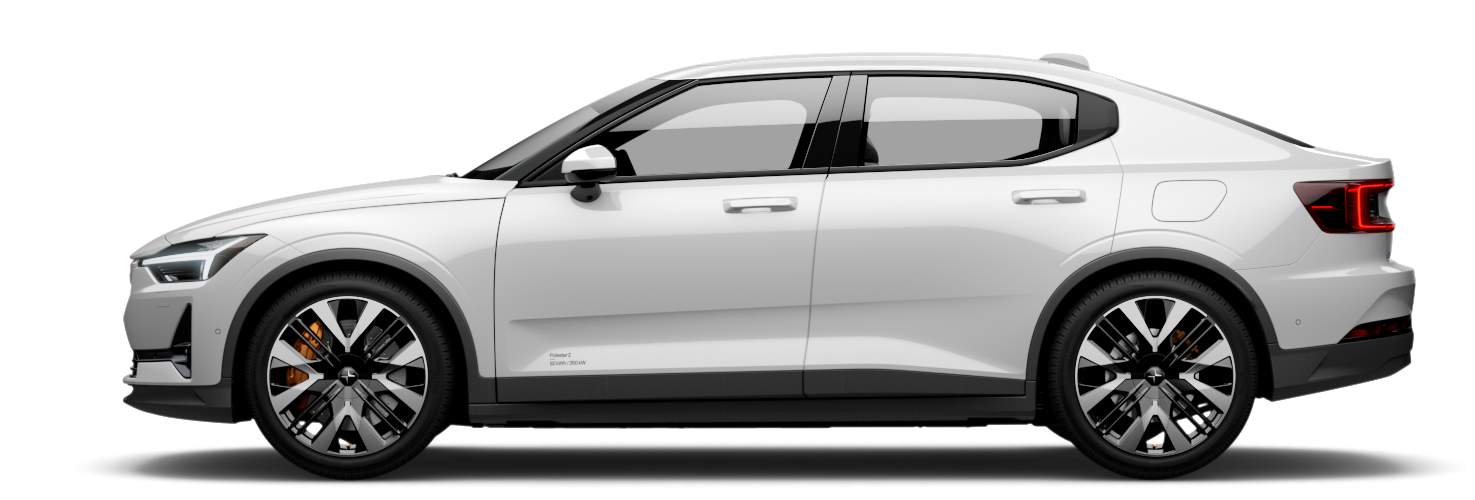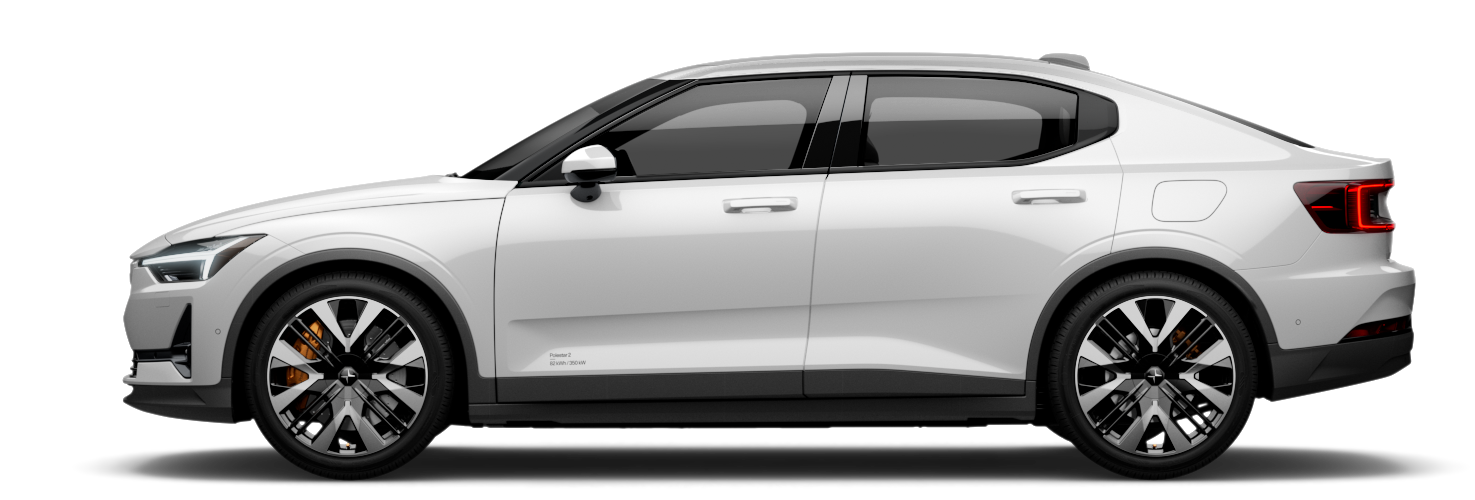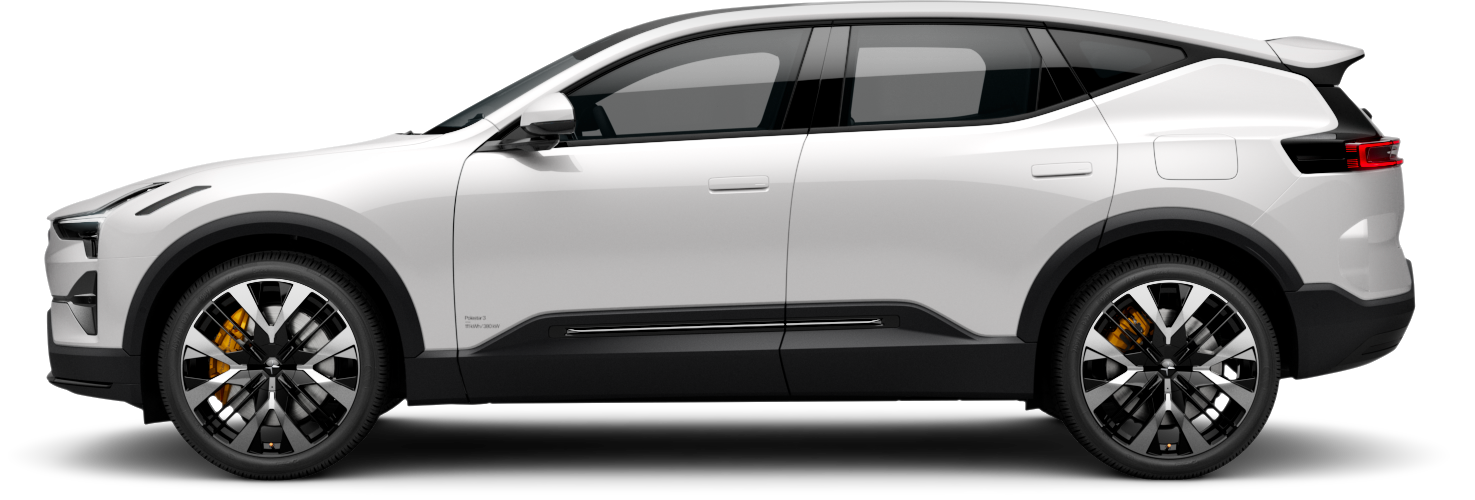On average, European drivers travel 40 to 80 km a day. All modern EVs can cover that distance for several days before needing a recharge. Owners of cars with bigger batteries, such as a Polestar, may only need to charge on a weekly basis.
On average, European drivers travel 40 to 80 km a day. All modern EVs can cover that distance for several days before needing a recharge. Owners of cars with bigger batteries, such as a Polestar, may only need to charge on a weekly basis.
Real-world range vs WLTP
- 01.The car itself
Overall weight, tyre choice, tyre condition, and climatisation all affect the number of miles you can get out of a full battery. The same goes for mounting a roof box or pulling a trailer. The less power is used to counter rolling resistance or temperature differences, the more energy can be converted into motion.
- 02.Weather and road conditions
Wind, outside temperature, and road surface influence the energy needed to propel an EV. Cold weather, for example, makes the battery work harder and can decrease the efficiency of the powertrain depending on use of climate control. However, preheating the car while it’s being charged will effectively increase its range.
- 03.Driving
Accelerating hard and satisfying the need for speed can be very tempting, especially with the instant power of an EV at your disposal. However, a calmer attitude behind the wheel will ensure that you can go the extra mile(s). When travelling on the motorway, making use of the cruise control function can also help to extend your range, by allowing the car to make the most efficient decisions about speeding up and slowing down.
Car features that improve range
Instead of turning useful braking energy into useless heat, regenerative braking turns it back into power to extend the car’s range. Each time the driver brakes, the battery recovers some of its charge.
The heat pump harvests thermal energy from the powertrain to warm up the cabin, putting waste heat to good use. It helps reduce the climate system’s energy demand, allowing the car to travel further on a single charge.
Pre-heating or pre-cooling with the car on charge helps to save a significant amount of battery power while driving.
The powertrains of Polestar 3 and Polestar 4 can be optimised for efficiency by selecting range mode in the drive settings menu. The disconnect clutch then disengages the rear motor on Polestar 3 and front motor on Polestar 4 to save power at lower speeds.
- 01.Manage your speed
Smooth driving with less acceleration and deceleration will extend the range of an EV. The same goes for lowering the cruising speed, as it effectively reduces energy consumption. To help get more miles out of a charge, Polestar offers an onboard range assistant that shows the impact of how you’re driving at any given moment.
- 02.Pre-climatise
EVs like your Polestar offer pre-entry climate control, allowing the interior to be heated or cooled while the car is being charged. This option provides the optimal interior temperature while also increasing the range of a single charge.
- 03.Select eco climate
While driving, you can reduce the energy used for heating or cooling by selecting the eco climate function. Once activated, it automatically adjusts the climate settings to optimise the range.
- 04.Coast to a stop
Letting an EV coast to a stop positively affects range. The one-pedal drive feature on your Polestar will start applying the brakes if the driver stops accelerating, so it’s better to switch it off for coasting.
- 05.Travel light
Don't keep unnecessary weight in the boot and avoid unused items on top of the car, such as a roof rack. Both will significantly reduce the energy efficiency of an EV, as more power is needed to overcome rolling resistance.
- 06.Plug in more often when it’s cold
Cold weather can influence the efficiency and the driving range of an EV. To counter this, plug the car in more often and use the energy from the charger to help the battery remain warm. Otherwise, the battery will have to warm itself up, reducing the number of miles you can get from a charge.





